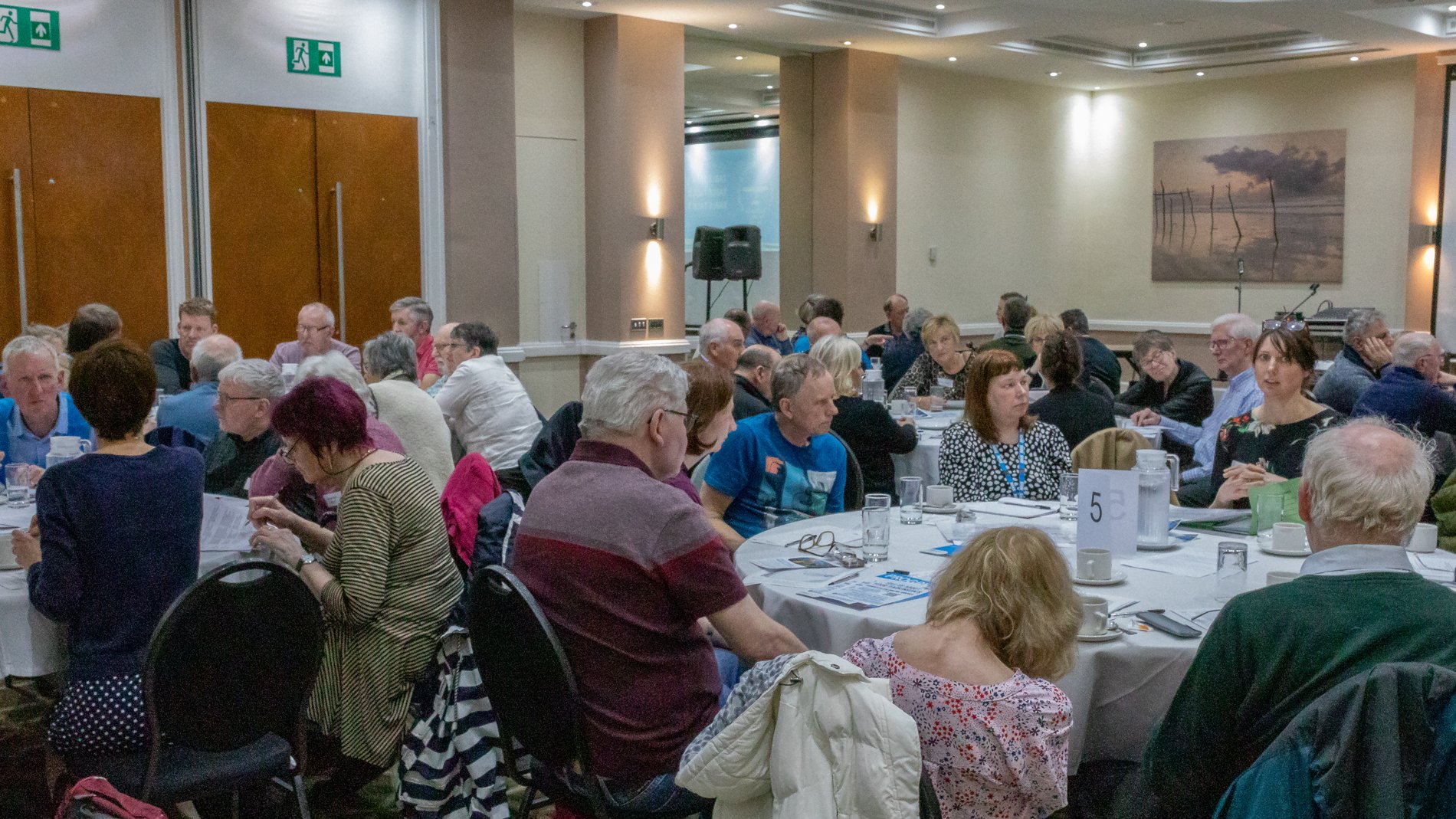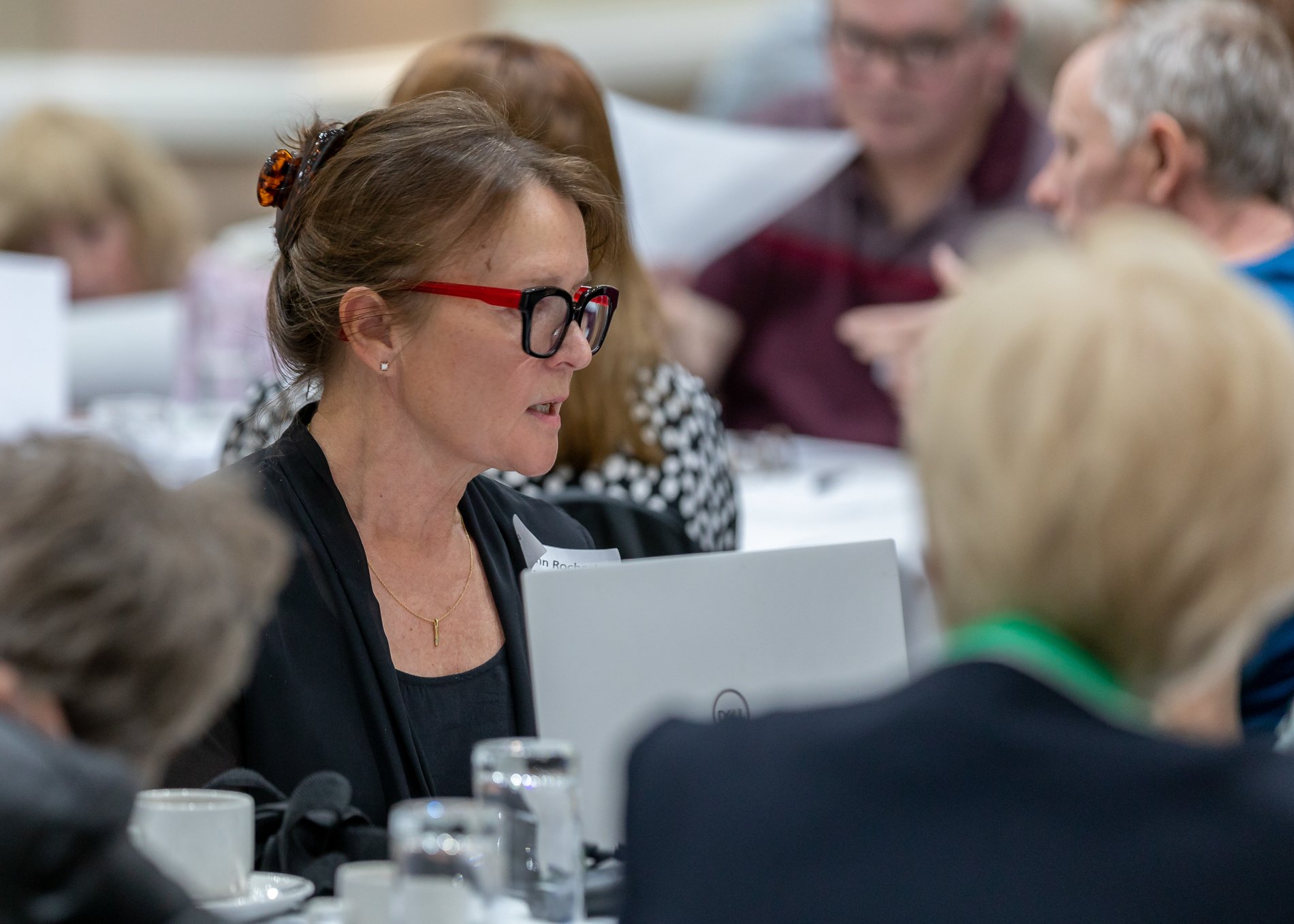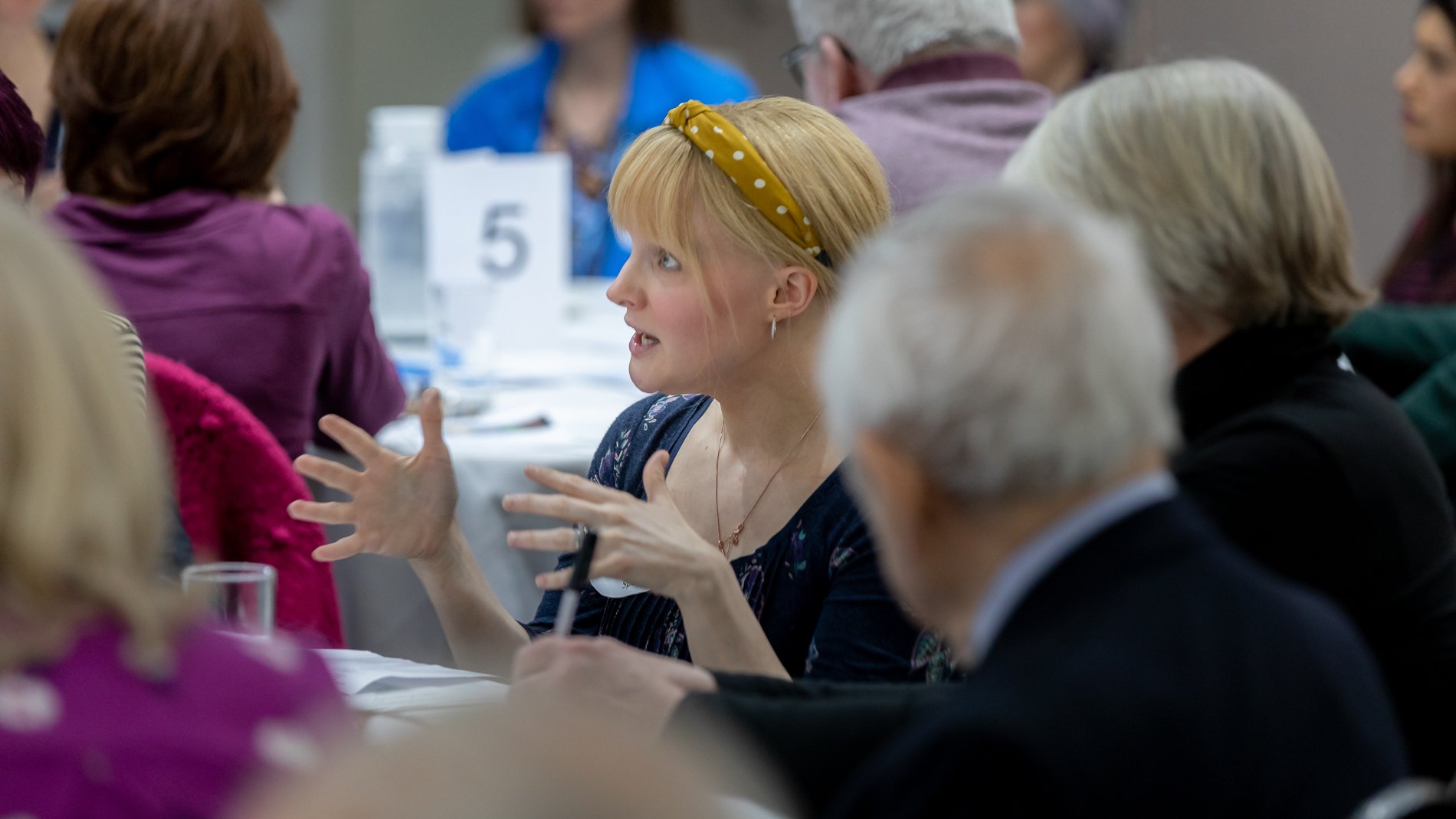Parkinson’s NEC-RIG Research Engagement Day
Parkinson’s NEC-RIG Research Engagement Day (March 23rd 2023)
Written by Stephen from the Sunderland Branch, Parkinson’s UK
The Copthorne Hotel in Newcastle was the venue for the Research Engagement Day organised by PD UK regional office. Main speakers were Prof David Burn (Professor of Movement Disorder Neurology and Honorary Consultant Neurologist for Newcastle Hospitals and Pro Vice Chancellor of the Faculty of Medical Sciences at Newcastle University) and Caroline Rassell (Chief Executive Officer of Parkinson’s UK).
Professor David Burn spoke about the close links between university research and the NHS by the Integrated Care Boards (funding bodies); Parkinson’s Excellence Networks, and the Newcastle Health Innovation Partners (NHIP) which connect and amplify excellence in NHS within the North East and Cumbria.
He is involved in development Campus for Aging and Vitality on the Newcastle General Hospital site, which is alongside the CRESTA and CARU departments of the Newcastle University / Newcastle Hospitals, and this will create a Health Innovation Neighbourhood to lead the world in the empowerment of longer healthier lives, improving health, wealth and wellbeing.
Dr Felicity Shenton Public Involvement and Community Engagement Manager, National Institute Health Research (NIHR) Applied Research Collaboration (ARC), addressed the ARC which links local universities, health trusts and councils to address inequalities in health and social care.
Caroline Rassell CEO of Parkinson’s UK explained the 2023 to 2026 strategy for people with Parkinson’s are the key to success of research as all PWP journeys are different.
Between 2018 and 2045 it is expected that the numbers of PWP’s will increase by 58%, and P UK are pushing for numbers of support specialists (physiotherapists etc.) to be increased. There are 34 research projects supported by Parkinson’s UK, and 12 Virtual Biotech projects which have access for PWP’s
Overall Parkinson’s UK are pushing for:
Excellence in Health and Care
Building your community of support.
Getting new treatments to you, faster
The main speakers were followed by a series of ‘table-top’ talks by each of the following:-
Professor Lynn Rochester, Professor of Human Movement Science in the Institute of Neuroscience, Newcastle University
Using wearable devices to monitor walking and activity in Parkinson’s Measurement of mobility in Parkinson’s is not standard, and Professor Rochester’s aim is to standardise this by the use of small body warn devices to record movement, measurement of gait, and to identify the risk of falls. This has developed into a European group study to provide consistent measurement.
Professor Richard Walker, Honorary Professor of ageing and international health, Northumbria Hospitals
Is remote physiotherapy effective for people with early Parkinson’s—’PEEP Study’ Drooling can occur when a PWP multi-tasks where there is a failure to swallow. CUE band is a wrist device, or an app on a smart phone, which can prompt the wearer to swallow. Application for this research can be on-line or a call, leading to two 3 week periods of keeping a diary. ’Neuro Heroes’ on the Parkinson website is a similar project.
Kathryn Walker, Clinical Research Nurse, Clinical Ageing Research Unit (CARU), Newcastle University and Newcastle upon Tyne Hospitals
Kathryn provided a list of current research projects that are currently recruiting (copy available from committee on request). CARU is multi-disciplinary team of Clinical Research Nurses, Speciality doctors, Physiotherapists, Psychologists, Movement Scientists and Research Professionals, working within a modern consulting and assessment environment which included a Gait Laboratory (movement assessments); Visual Perception Laboratory; Dexa scanner for bone density measurements, and a Clinical Laboratory.
Dr Jenni Naisby, Physiotherapist and Senior Lecturer, Northumbria University
Pain in Parkinson’. As around 50% of PWP’s have pain for which they do not receive any pain management, a research tool kit is being developed for patients and professionals. This is to determine whether PD pain or other body pain have links, particularly in the early stages of PD.
Dr Alison Yarnall, Clinical Senior Lecturer and Honorary Consultant in Older Peoples Medecine, Newcastle University
A Handheld device to help reduce falls. This will be used to stimulate the vagus nerve in the neck, with the intention of improving walking and reducing falls. A larger study will start shortly where participants will have two stimulations per day for 12 weeks, and a check again at 24 weeks.
Susan Wilson, Clinical Research Nurse, South Tyneside and Sunderland Hospitals Engaging patients, families, and carers with research: an update from South Tyneside and Sunderland.
Susan is gathering responses about potential projects by STST’s—Demonstrating the benefit of expanding physiotherapy services into the community; and looking at breath work in conjunction with usual physiotherapy.
Dr Chris Morris, Senior Lecturer, Translational and Clinical Research Institute, Newcastle University
Towards blood tests of Parkinson’s. Advised that a blood test is being developed to spot Parkinson’s, Dementia or MSA at early stage before the onset of symptoms.
Julia Das, Physiotherapist, Northumbria University
80% of PWP’s have vision problems, and research into spatial awareness with home based tests which are carried out with & without technological kit. This kit is a pair of spectacles with lenses that flicker when worn, stimulating the eyes to view objects with greater accuracy.













